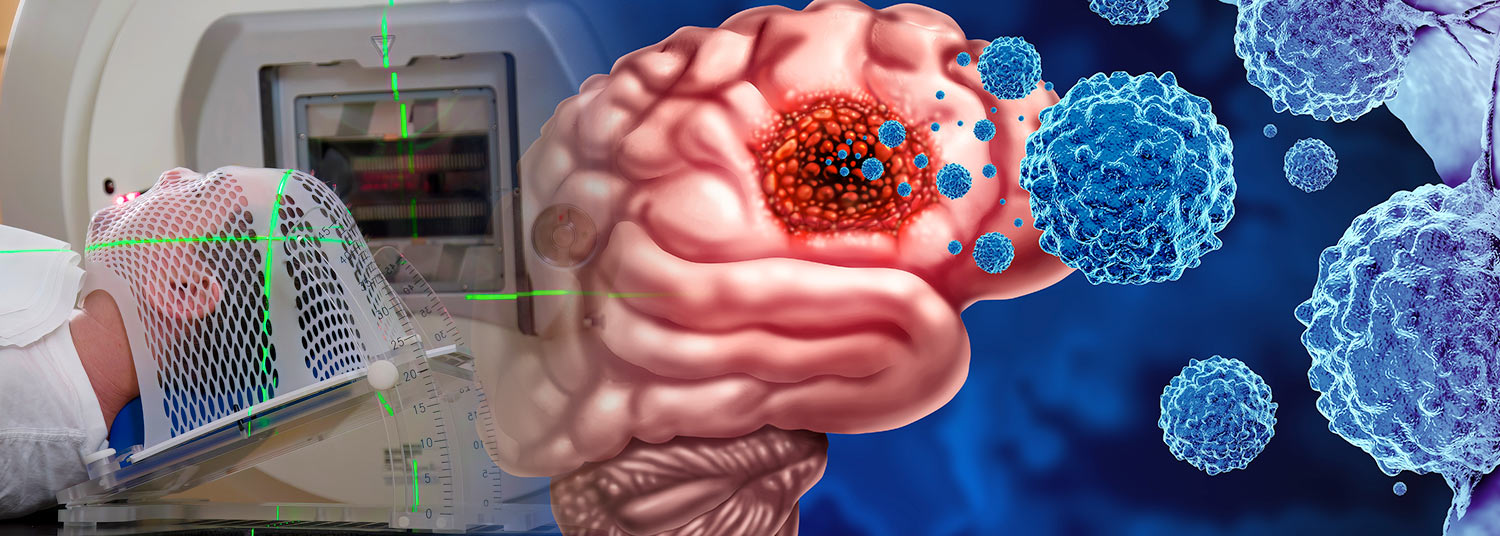October 01, 2024 | Karen Warmkessel
Research Featured at ASTRO Annual Meeting, Along with Study About Black Patients’ Views on Clinical Trials
Nearly 40 percent of cancer patients who experienced memory loss, brain fog and other cognitive difficulties after radiation treatment for brain metastases regained full neurocognitive function within six months, according to a new analysis by radiation oncology researchers at the University of Maryland Greenebaum Comprehensive Cancer Center (UMGCCC).
 The study also found that patients were more likely to recover from these cognitive side effects if they received highly targeted radiation treatments vs. standard whole-brain radiation. Researchers defined cognitive recovery as having no evidence of impairment based on a series of sophisticated cognitive tests.
The study also found that patients were more likely to recover from these cognitive side effects if they received highly targeted radiation treatments vs. standard whole-brain radiation. Researchers defined cognitive recovery as having no evidence of impairment based on a series of sophisticated cognitive tests.
The findings from an analysis of cognitive testing data from 288 patients in three large, randomized Phase III clinical trials were presented today at a press briefing at the annual meeting of the American Society for Radiation Oncology (ASTRO) in Washington, D.C. It was one of two studies by University of Maryland Department of Radiation Oncology researchers highlighted at the briefing.
Hua-Ren Ryan Cherng, MD, the lead author of the brain radiation study and a fifth-year radiation oncology resident at UMGCCC within the University of Maryland Medical Center (UMMC), said the results may help physicians counsel their patients about treatment options and recovery from potential cognitive side effects.
“No longer should we be viewing cognitive dysfunction as a permanent endpoint for patients,” Dr. Cherng said. “It is not uncommon for patients to experience cognitive issues following radiation therapy, especially whole-brain radiation, but we didn’t know how they would fare long-term. Now we have data that show that they can get better within months – with no symptoms – and sustain that recovery over time.”
Brain metastases are cancers that have spread to the brain from other parts of the body. About 200,000 people are diagnosed with brain metastases each year in the U.S. Treatments include whole-brain radiation or more targeted treatments, such high-dose stereotactic radiosurgery or a type of whole-brain radiation that avoids treating the hippocampus, a key structure in the brain that controls cognition and memory.
Resources for the Media:
Please download videos or audio to your computer before viewing them.
With more targeted radiation, systemic therapies and earlier detection, these patients are living longer, and cognitive side effects are a major quality-of-life concern for them, Dr. Cherng said. “They still want to share memories and make new memories with their loved ones. Cognition is a critical part of their lives.”
The researchers analyzed data from long-term cognitive testing from three clinical trials that measured neurocognitive outcomes – two conducted by the North Central Cancer Trials Group and one by NRG Oncology.
Of the 288 patients in the study who experienced cognitive problems, 38 percent fully recovered at six months and 42 percent at one year. There were also patients who showed improvement on cognitive tests but had not achieved full recovery -- 73 percent at six months and 76 percent at one year. Some patients were followed for two years, and two-thirds of them continue to show no sign of cognitive issues.
Mark V. Mishra, MD, an associate professor and Vice Chair of Clinical Research in the Department of Radiation Oncology at the University of Maryland School of Medicine (UMSOM) and a radiation oncologist at UMGCCC, is the study’s senior author.
The Greenebaum Comprehensive Cancer Center is located at UMMC, the academic flagship of the University of Maryland Medical System (UMMS), and is one of 57 National Cancer Institute (NCI)-designated cancer centers in the U.S.
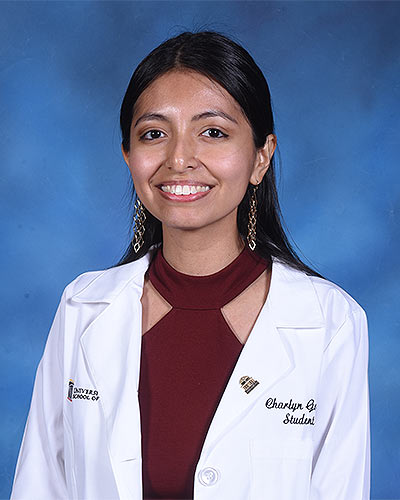 Also featured today at the ASTRO press briefing was a study that explored factors that may influence Black patients’ participation in cancer-related clinical trials. Nationally, Black individuals are underrepresented in clinical trials compared to Whites. Ninety-seven cancer patients – 30 percent of them Black – responded to questions on a survey between October 2023 and February 2024. Among the findings:
Also featured today at the ASTRO press briefing was a study that explored factors that may influence Black patients’ participation in cancer-related clinical trials. Nationally, Black individuals are underrepresented in clinical trials compared to Whites. Ninety-seven cancer patients – 30 percent of them Black – responded to questions on a survey between October 2023 and February 2024. Among the findings:
- Black patients were more than five times as likely to agree that death or illnesses were determined by God’s will and that God determined wellness
- 20 percent of Black patients said they agreed that research harmed minority populations, compared to zero non-Black patients
- Black participants were 10 times more likely than non-Black participants to say that they felt they and the community had nothing to gain from participating in clinical research
“Our research has identified some really important themes that should be discussed with patients as part of the recruitment process, such as spirituality or faith, as well as recognizing the elephant in the room that is a justifiable mistrust stemming from structural racism and historical practices in clinical trial programs,” said Charlyn Gomez, the study’s lead author and a third-year medical student at UMSOM. “But on the positive side, we also found there is trust in the medical care team and perhaps we can build from there.”
Melissa Ana Liriano Vyfhuis, MD, PhD, an associate professor of radiation oncology at UMSOM and a radiation oncologist and medical director of radiation oncology at The Cancer Center at the University of Maryland Capital Region Health in Largo, Md., an UMMS member organization, is the study’s senior author.
About the University of Maryland Marlene and Stewart Greenebaum Comprehensive Cancer Center
The University of Maryland Marlene and Stewart Greenebaum Comprehensive Cancer Center is a National Cancer Institute-designated comprehensive cancer center within the University of Maryland Medical Center in Baltimore, the flagship academic hospital of the University of Maryland Medical System. It offers a multidisciplinary approach to treating all types of cancer and has an active clinical and basic science research program through its relationship with the University of Maryland School of Medicine. The center is ranked among the top 50 cancer programs in the country by US News & World Report. www.umgccc.org
About the University of Maryland School of Medicine
Now in its third century, the University of Maryland School of Medicine was chartered in 1807 as the first public medical school in the United States. It continues today as one of the fastest growing, top-tier biomedical research enterprises in the world -- with 46 academic departments, centers, institutes, and programs, and a faculty of more than 3,000 physicians, scientists, and allied health professionals, including members of the National Academy of Medicine and the National Academy of Sciences, and a distinguished two-time winner of the Albert E. Lasker Award in Medical Research. With an operating budget of more than $1.2 billion, the School of Medicine works closely in partnership with the University of Maryland Medical Center and Medical System to provide research-intensive, academic and clinically based care for nearly 2 million patients each year. The School of Medicine has nearly $600 million in extramural funding, with most of its academic departments highly ranked among all medical schools in the nation in research funding. As one of the seven professional schools that make up the University of Maryland, Baltimore campus, the School of Medicine has a total population of nearly 9,000 faculty and staff, including 2,500 students, trainees, residents, and fellows. The combined School of Medicine and Medical System (“University of Maryland Medicine”) has an annual budget of over $6 billion and an economic impact of nearly $20 billion on the state and local community. The School of Medicine, which ranks as the 8th highest among public medical schools in research productivity (according to the Association of American Medical Colleges profile) is an innovator in translational medicine, with 606 active patents and 52 start-up companies. In the latest U.S. News & World Report ranking of the Best Medical Schools, published in 2023, the UM School of Medicine is ranked #10 among the 92 public medical schools in the U.S., and in the top 16 percent (#32) of all 192 public and private U.S. medical schools. The School of Medicine works locally, nationally, and globally, with research and treatment facilities in 36 countries around the world. Visit medschool.umaryland.edu
About the University of Maryland Medical Center
The University of Maryland Medical Center (UMMC) is comprised of two hospital campuses in Baltimore: the 800-bed flagship institution of the 11-hospital University of Maryland Medical System (UMMS) and the 200-bed UMMC Midtown Campus. Both campuses are academic medical centers for training physicians and health professionals and for pursuing research and innovation to improve health. UMMC's downtown campus is a national and regional referral center for trauma, cancer care, neurosciences, advanced cardiovascular care, and women's and children's health, and has one of the largest solid organ transplant programs in the country. All physicians on staff at the downtown campus are clinical faculty physicians of the University of Maryland School of Medicine. The UMMC Midtown Campus medical staff is predominantly faculty physicians specializing in a wide spectrum of medical and surgical subspecialties, primary care for adults and children and behavioral health. UMMC Midtown has been a teaching hospital for 140 years and is located one mile away from the downtown campus. For more information, visit www.umm.edu
Contact
Karen Warmkessel
Media Relations Senior Manager
University of Maryland Medical Center
Email: kwarmkessel@umm.edu
Cell: (410) 404-1532
Related stories
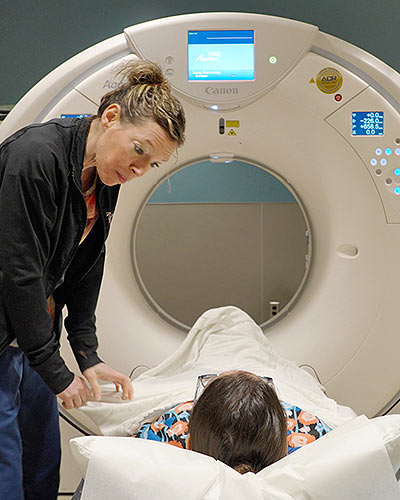
Tuesday, April 16, 2024
University of Maryland Greenebaum Comprehensive Cancer Center and AstraZeneca Partner to Enhance Community-Based Lung Cancer Screening and Detection for Marylanders at High Risk
With only a small percentage of Marylanders at high risk for lung cancer getting the recommended annual screening, the University of Maryland Marlene and Stewart Greenebaum Comprehensive Cancer Center (UMGCCC) today launched a new statewide effort to increase annual screenings.
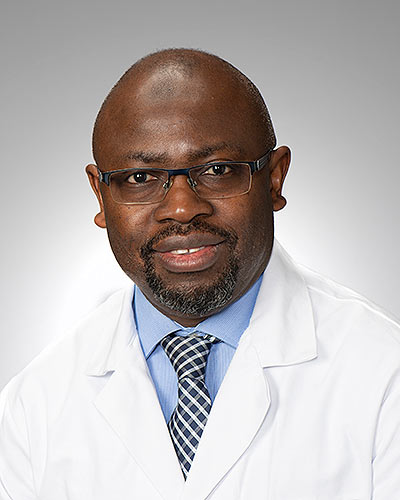
Monday, October 02, 2023
Internationally Recognized Thoracic Oncologist Dr. Taofeek K. Owonikoko Named Executive Director of the University of Maryland Marlene and Stewart Greenebaum Comprehensive Cancer Center
University of Maryland School of Medicine (UMSOM) Dean Mark T. Gladwin, MD, and University of Maryland Medical Center (UMMC) President & CEO Bert W. O’Malley, MD, announced today that Taofeek K. Owonikoko, MD, PhD, a distinguished physician-scientist with a global reputation in thoracic oncology, has been appointed Executive Director of the University of Maryland Marlene and Stewart Greenebaum Comprehensive Cancer Center (UMGCCC). Dr. Owonikoko will join the faculty of the University of Maryland School of Medicine (UMSOM) as The Marlene and Stewart Greenebaum Professor in Oncology in the Department of Medicine and Executive Director of the UMSOM Program in Oncology. He will also become Chief of Service at UMMC. As the lead Oncologist for both UMMC and UMSOM, he will assume the positions of Senior Associate Dean for Cancer Programs at UMSOM and Associate Vice President for Cancer Programs at University of Maryland, Baltimore (UMB).
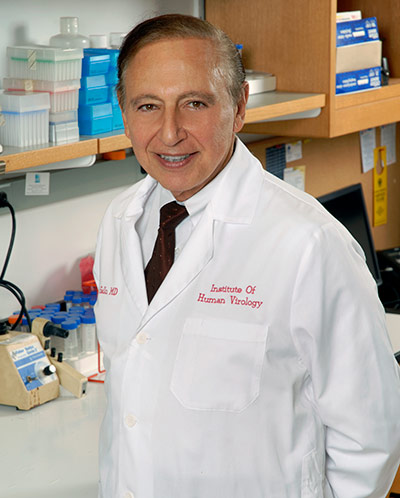
Monday, October 31, 2022
NCI Grants Awarded to IHV to Prevent Cancer and Improve Screening in Sub-Saharan Africa
Institute of Human Virology (IHV) researchers at the University of Maryland School of Medicine (UMSOM) have received two five-year awards from the National Institutes of Health’s National Cancer Institute (NCI) for a total of $7.5 million. One award aims to reduce the incidence of lung cancer and other cancers associated with using tobacco in Botswana. The other is focusing on improving screening and treatment of anal precancer in Nigeria. Both grants will make use of existing HIV treatment and prevention infrastructure in low- and middle-income countries to reach people living with HIV who are most at risk for these particular types of cancers.

Tuesday, February 01, 2022
Study: Losing Excess Weight in Adulthood Reduces Risk of Developing Polyps that can Lead to Colorectal Cancer
Weight loss for adults, particularly those who are overweight or obese, may reduce their risk of developing a type of polyp that can lead to colorectal cancer, according to a new study led by researchers at the University of Maryland School of Medicine (UMSOM). Findings were published today in the journal JNCI Cancer Spectrum.
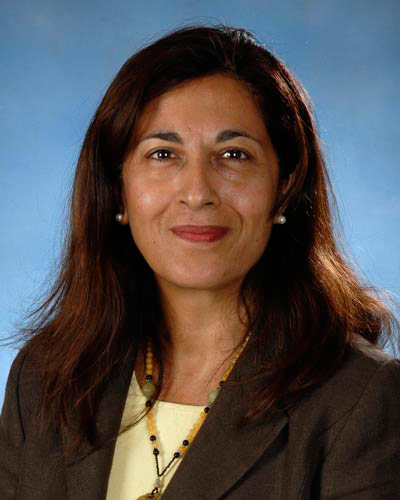
Tuesday, July 14, 2020
UM School of Medicine Researchers Identify Mechanism for Treating Cancer Cells
Researchers at the University of Maryland School of Medicine (UMSOM) have identified a surprising new mechanism that may significantly expand use of an important cancer drug, called a PARP inhibitor. These drugs are currently only approved to be used in those with certain mutations in the BRCA1 or BRCA2 genes that are associated with breast and ovarian cancers. The new findings were published online last week in the Proceedings of the National Academy of Science (PNAS) journal in collaboration with a group at Johns Hopkins School of Medicine.

Thursday, October 10, 2019
UM School of Medicine Researchers Announce Promising Early Results from Immunotherapy Study on High-Risk Soft Tissue Sarcoma
A combination of two immunotherapy drugs and radiation prior to surgery could offer a potential new treatment for soft tissue sarcomas, a rare type of cancer, according to University of Maryland School of Medicine (UMSOM) researchers who presented their early results this week at the annual Musculoskeletal Tumor Society (MSTS) meeting in Portland, OR.

